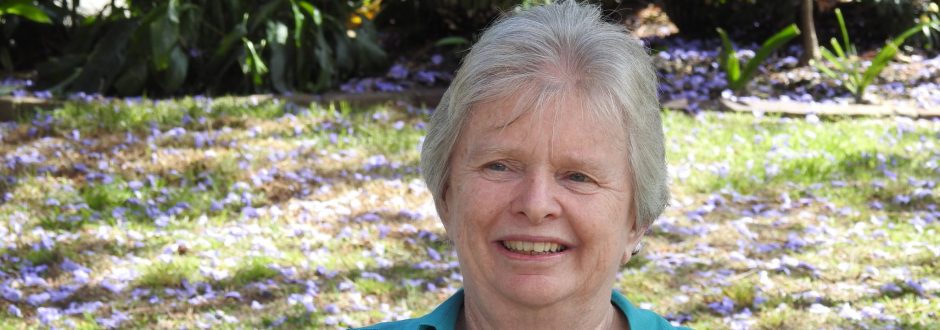Difference can bring about healing and grace rather than division, even when such difference can be the source of many questions, anxiety and hurt, writes Good Samaritan Sister Clare Condon.
BY Clare Condon SGS
Twenty-five years ago on April 20, 1990, two Sisters of the Good Samaritan – Keiko Goto and Haruko Morikawa – set out from Japan on a new adventure. They left the security of convent life in the beautiful, picturesque and ancient city of Nara. They were highly qualified teachers and administrators who believed that God had plans for them elsewhere.
They came to Bacolod on the island of Negros in the Philippines, in response to the call of the Japanese Church to be reconcilers in Asia. They came to learn from the Filipino people and to be a lantern of reconciliation and peace following the atrocities that Japan had enacted in the Philippines during World War II.
These two women came to be with those for whom life had little to offer in material terms. They came to learn a new language, to experience a different culture and a different experience of Catholic life. In Japan they belonged to a Catholic community that made up just 0.4 per cent of the country’s population. Now they would belong to a highly devotional and national Church where over 90 per cent of the population were Catholic.
On May 9 this year, 12 Good Samaritan Sisters from Japan, Australia and the Philippines, including Sister Haruko, came to Bacolod to celebrate 25 years of Good Samaritan life and mission. I was one of those 12. What a celebration it was!
From those early and small beginnings, two communities of six sisters from three distinct cultures – Japanese, Australian and Filipino – now live and minister in Bacolod. They do so in a great variety of ways, especially with those most in need in the community. During our celebrations last week 400 people came to Eucharist to acknowledge the initiatives that had taken root over this time.
Flowing from those initial, tentative steps 25 years ago, there is now a flourishing kinder school for children from the squatter areas. The sisters, through the generosity of people in Japan, provide educational scholarships for young women and men from impoverished areas, helping them to achieve a secondary and tertiary education. Feeding programs for malnourished young children are an integral part of support for the most deprived people. Young people are tri-lingual as a result of Japanese and English language classes. The local orphanage and prison are visited. Last year an outreach centre for adult education and formation was established.
Yet, what I believe is the greatest achievement of this initiative is the cross-cultural living that these sisters engage in.
Our world in many places is being torn apart by difference, which is used as the basis for hatred, conflict and violence. Difference characterised by ethnicity, race, religion, nationalism, tribalism or wealth can become the reasons for human destruction and annihilation in so many parts of the world. Yet, these sisters from three very different and distinct nations, live together in community as a united group. For them, difference is something to be respected. It can bring about healing and grace rather than division, even when such difference can be the source of many questions, anxiety and hurt.
One might suggest that there is nothing spectacular about such communal living. After all, it happens in many different configurations around the globe. But that is the remarkable reality! In thousands of small and unassuming ways, the human spirit, which seeks harmony and respect, is greater than divisiveness and can welcome and engage healthily with difference when nurtured within the context of community. Such experiences can be sources of personal and communal growth.
Internationally-renowned Dominican priest and author Timothy Radcliffe said in one of his books, which I paraphrase, Give me a group of like-minded people and you simply have a group of like-minded people; but give me a group of different characters living together in the struggle and the joys of life, and you have a community. Community is missing in much of our Western world today. Community-building is a challenge in an environment of individualism and consumerism. But I believe it is only in community that we humans can find our true identity.
Social researcher and author Hugh Mackay reinforces this idea in his latest book The Art of Belonging – It is not where you live, it’s how you live. Over these past days in Bacolod, I experienced the true ‘art of belonging’. As Mackay writes:
“Every community has its differences of opinion, its social divisions and its cultural tensions, which is simply to say that every community is diverse, and inescapably, human. If you want to master the art of belonging, you’ll need to accept the imperfections and deal with them. And the best way of dealing with them is to overlook them. There’s a lot of tolerance – a lot of forgiveness – in the art of belonging.”
Yes, it was clearly a community of tolerance and forgiveness that I experienced; one which had grown from those humble beginnings initiated by the Japanese sisters. It is not where you live that matters. It is how you live. Such cross-cultural living as I experienced has the potential to be a healer of division and conflict in our world, if we are but open to its riches.
